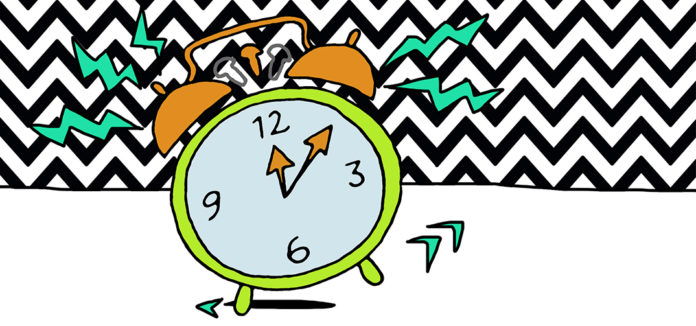Father, New York University Instructor and Author of U Thrive: How to Succeed in College (and Life) on being the best, naps and that particular Chernow biography that’s been staring at him from the nightstand.
That Personal Touch: A Scientific Reason to Monogram Your Shirt
I teased a friend for buying NikeiD custom sneakers. “What’s the point?” I asked. Why pay extra to personalize a pair of running shoes? “Customized shoes won’t make you run any faster.”
Actually, they could. According to this study, when you put your personal stamp on something—be it a pen or a putter—you can significantly improve performance. Students did better on tests, and athletes performed better when they used items they had personalized to portray aspects of themselves.
It is not about superstition or a belief that the product is lucky. When you make something your own, it becomes an extension of your identity and strengthens motivation. Make your mark on your equipment. Make it feel uniquely “you.”
I finally have an excuse to customize the bed linens I have always dreamed of from D. Porthault. No doubt I will sleep better.
I wish you all the best,
Dr. Samantha Boardman
Let Them Eat Fruit: A Fast Track to Happiness
Listen to your mother! Eating fruits and vegetables isn’t just good for your physical health, it’s good for your mental health, too. There is growing evidence that a diet high in “FV” — as researchers call “fruits and vegetables” — is linked to greater happiness and higher life satisfaction.
And better than an info-mercial, the results are almost instantaneous. A new study found that eating just a few more servings of FV a day can lift your mood and boost your psychological wellbeing in just two weeks. Yes, just two weeks. Participants reported an increase in motivation, vitality and flourishing. It’s the gift that keeps on giving — even after the study was over, people wanted to continue eating their FV because they felt so good.
Of note, being a nag and just reminding people to eat their fruits and vegetables because it will prevent heart disease is not enough. Make fruits and vegetables available and highlight how much better they will feel immediately.
I wish you all the best,
Dr. Samantha Boardman
Darcy Miller
Mother, celebrator and illustrator. Perspective, 50-pound scrapbooks and joy — see what else makes the author and believer in Celebrate Everything! tick.
Who Should Choose Your Profile Picture? Hint: It’s Not You
Who cares what other people think? We are bombarded with advice telling us to make our own choices and not be swayed by other people’s opinions. Be the master of your own destiny, they say. It’s your life. Do it your way. The assumption is that we know better, and if we look within ourselves, we will find all the answers and make the right choices.
While I agree with the basic premise that it is important to make decisions that reflect our personal values, I also believe it is important to get out of our own head.
Seek advice from people you admire and to get honest feedback from people you trust. When it comes to making decisions—about things big and small—you may not be the expert you think you are. Emotions, past experiences, misperceptions and assumptions tend to cloud judgment. Suboptimal decisions are the result. Sometimes other people really do know best.
This is especially true when it comes to choosing profile pictures for dating, Facebook and LinkedIn. One might assume that we would choose the best photos of ourselves but it turns out we are downright useless. Other people are more adept at picking the most flattering pictures. This phenomenon has practical implications. As the researchers conclude, “should people wish to “put their best face forward,” they should ask someone else to choose it…
Indeed, self-expertise may be a myth, at least when it comes to choosing the most appealing photo of yourself. Surely, the limits of self-perception are not limited to the selection of profile pictures. Instead of looking inside of yourself for all the answers, look up from your phone, look out into the world and tap into the wisdom of others. We don’t always have to go it alone.
I wish you all the best,
Dr. Samantha Boardman
Is The Hurry In Your Head?
“Frantic, rushed, crazy busy,” are words that roll off my patients’ tongues when I ask them how they are. I can relate all too well. People who say they feel pressed for time experience more stress and anxiety. It goes the other way too. People who feel stressed and anxious also feel more pressed for time.
According to a study, how we think about goals shapes our perception of time. When we think about goals as in conflict with one another we experience more stress and heightened time pressure. Technology may explain why this seems worse now more than ever:
Technological advances that allow people to do lots of things at once may exacerbate the feeling of goal conflict…On our phones, we can flip or toggle back and forth between dealing with family members and friends and colleagues, making appointments for our pets, making appointments for our kids.
In other words, the gadgets we use to save us time end up making us feel even more pressed for more time because they aggravate this sense of conflict. We feel pulled in a hundred directions at once.
Einstein famously said:
“The only reason for time is so that everything doesn’t happen at once.”
But these days everything does seem to happen at once. Everything seems urgent all the time.
The good news is that when we feel less conflicted, we restore our sense of time.
A study suggests two simple strategies to reduce the pressure of competing goals:
1. Taking slow deep breaths
2. Reframing anxiety as excitement
Doing things for others and meditation can also reduce what Bob Roth (vice president of the transcendental meditation David Lynch Foundation) calls the “Gotta mind” i.e. “I gotta do this, I gotta do that, I gotta go there, I gotta…etc…”
We tend to blame our busy lives but the hurry may be in our heads. Try one of these strategies to slow down. The only thing you have to lose is time.
I wish you all the best,
Dr. Samantha Boardman







